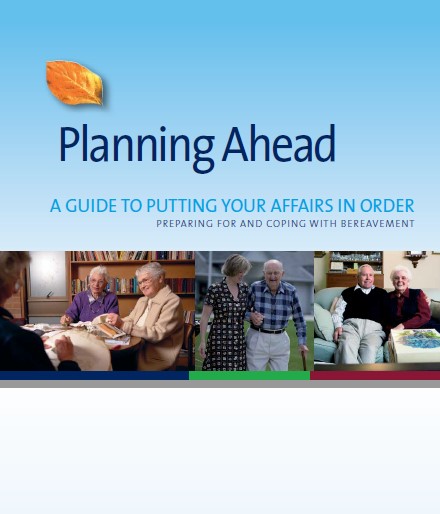Planning ahead
In late 2019, a staff member in the Office of Australian War Graves (OAWG) received a call from a man whose father was a veteran of the Second World War. His father had just died and he’d left among his important papers the OAWG’s brochure about official commemoration and a note directing his family to ‘call Kerry at War Graves’ upon his passing.
The veteran’s son was confronting what many of us will face at some point in our lives: negotiating loss and bereavement. It can be a truly overwhelming time for loved ones who are simultaneously grieving and having to manage arrangements for a final farewell. But for this son, his father was well prepared. He had spoken with DVA staff and established that he was eligible for official commemoration. That is, he knew that the Government would pay for an ashes placement site, a plaque at the site of his burial or a plaque in a Garden of Remembrance because he had spoken with ‘Kerry’, who had sent him information about what he was entitled to. As such, he was able to make an informed choice about his final resting place and how that place would be marked and left a clear list of instructions about this.
While we can’t be sure, it may be that he and his wife had discussed whether to accept the offer of official commemoration, and decided that when her time came she would join him at rest. Perhaps they had also discussed the funeral or memorial service: should it include a favourite poem, hymn or song; would they like the Returned and Services League (RSL) to contribute through a poppy ceremony and the playing of The Last Post. They may have settled on a private grave or niche placements alongside other family, but taken up the offer of official commemoration as a plaque placed within an Australian Government Garden of Remembrance.
Regardless of the form of official commemoration the veteran chose, he joins more than 325,000 Australian veterans who have died after their service of causes related to it. These official commemorations are cared for by the OAWG in perpetuity.

If your service-related condition has changed or if you have a new condition, approach DVA for advice as a claim or re-assessment may be beneficial — not just as it may relate to official commemoration, but because you may have additional entitlements for support. Ring or email DVA (1800 VETERAN (1800 838 372) or generalenquiries [at] dva.gov.au (generalenquiries[at]dva[dot]gov[dot]au)) and ask us to send you some information about official commemoration and ask if your entitlements include funeral benefits.
If you use MyService, opt in for official commemoration if you are eligible. If you are not entitled to official commemoration, the OAWG can provide you with permission to use the relevant service badge on your privately arranged memorial in advance of your passing. This letter of permission can also be left with your important papers.
It’s true that planning for these eventualities is not an enjoyable or indeed easy process; however, the more thought you can give to these necessary arrangements, the easier you will make it for your loved ones. And in doing so — you leave nothing to chance!
DVA has a Planning Ahead booklet designed to help veterans and their families prepare for bereavement. It’s available on our website or if you are unable to download or print a copy, or you’d like to speak to a member of the OAWG team, contact DVA for assistance.
